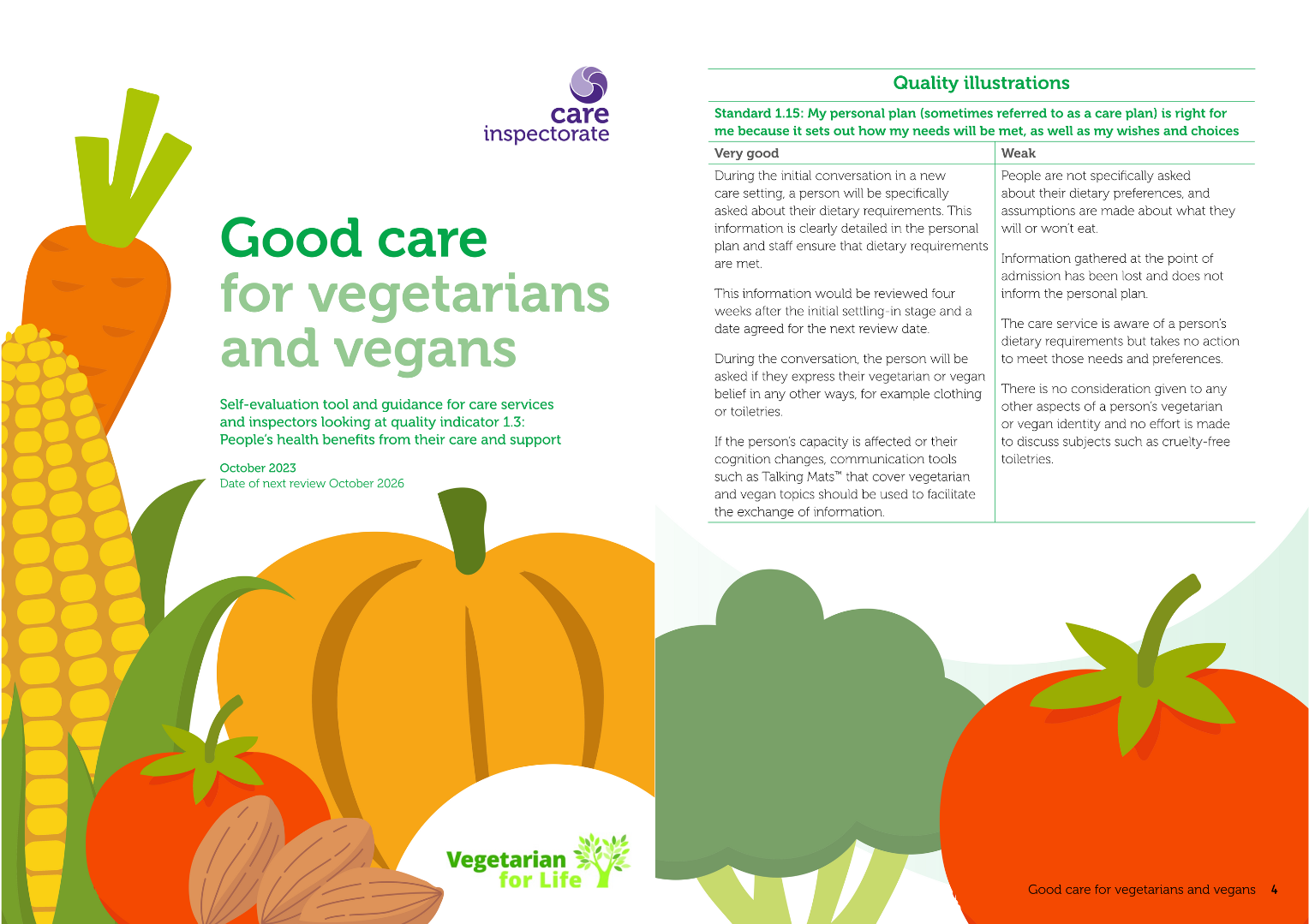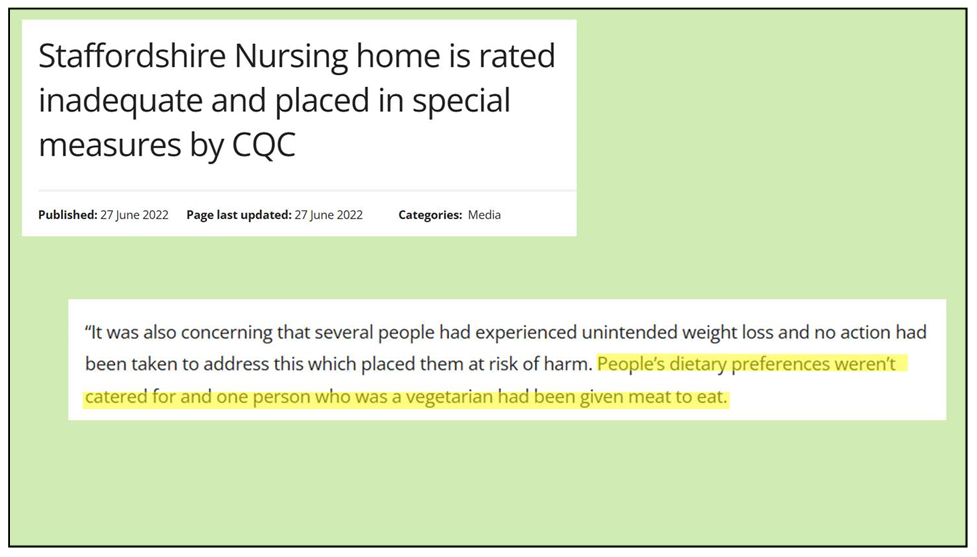Meeting CQC standards
Good care for vegetarians and vegans
If you run a care home or work in hospitality, you already know how closely the Care Quality Commission (CQC) looks at the care you provide. What you may not know is that failing to respect a resident’s vegetarian or vegan beliefs isn’t just poor practice – it can put you in breach of regulations and even lead to enforcement action.
This page explains what the CQC expects of you, why it matters, and where to find practical guidance – including the joint Good care for vegetarians and vegans resource produced by Vegetarian for Life and the Scottish Care Inspectorate.

Why this matters
For many older people, vegetarianism or veganism isn’t just a preference – it’s a deeply held belief, often lived out over a lifetime. Serving food that goes against these beliefs is not only distressing for the individual, but it can also breach your legal duty of care.
The CQC has made it clear: care must be person-centred, respectful and responsive, which includes meeting people’s dietary needs linked to religion or philosophy.
What the CQC looks for
CQC inspections are guided by 5 key questions: is your service safe, effective, caring, responsive, and well-led? When it comes to food, here’s what inspectors expect to see:
- Caring: People are treated as individuals, with their preferences understood and respected. That includes vegetarian and vegan diets.
- Responsive: Care plans reflect each person’s needs and beliefs, and you respond if those needs change.
- Safe and effective: Nutrition and hydration must support life, health and wellbeing – and CQC guidance is explicit: “When a person has specific dietary requirements relating to moral or ethical beliefs, such as vegetarianism, these requirements must be fully considered and met.”
The regulations you must meet
Three regulations are especially relevant:
- Regulation 14 – Nutrition and hydration: You must provide food and drink that meet not only nutritional but also moral/ethical needs. CQC can prosecute if failures here lead to avoidable harm.
- Regulation 9 – Person-centred care: Each resident’s needs and preferences, including diet, must be built into their care plan.
- Regulation 10 – Dignity and respect: People must always be treated with respect – including respect for their beliefs and dietary choices.
Case in point: a care home was placed in special measures when inspectors found a vegetarian had been served meat.

What you need to do in practice
- Ask about dietary beliefs at admission – and record them clearly.
- Build these into care and nutrition plans.
- Train staff – including agency and kitchen teams – so they understand why this matters.
- Offer genuine choice at every meal, not just token options.
- Monitor meals: check that what residents are served aligns with their plans.
- Use Vegetarian for Life’s Good care for vegetarians and vegans guidance to benchmark your practice.
Where to go for support
- CQC – Culturally appropriate care
- Vegetarian for Life/Care Inspectorate – Good care for vegetarians and vegans
- Vegetarian for Life training and resources
Quick checklist for managers
✔ Assess how well the person experiencing care is supported in their vegetarian or vegan beliefs.
✔ Contact Vegetarian for Life for support and advice.
✔ Review how care plans are used to enhance the experience of vegetarians/vegans experiencing care.
✔ Interview people experiencing care, staff, relatives and carers.
✔ Are people supported in choosing vegetarian and vegan meals, and are these meals varied and balanced?
✔ Is there an advance care plan detailing a person’s wishes regarding vegetarian and vegan food in the event of their capacity or cognition being affected or changed?
✔ If fortification is required, is this in accordance with their dietary preferences (for example non-dairy)?
✔ If a texture-modified diet is required, is the thickener used vegetarian or vegan?
